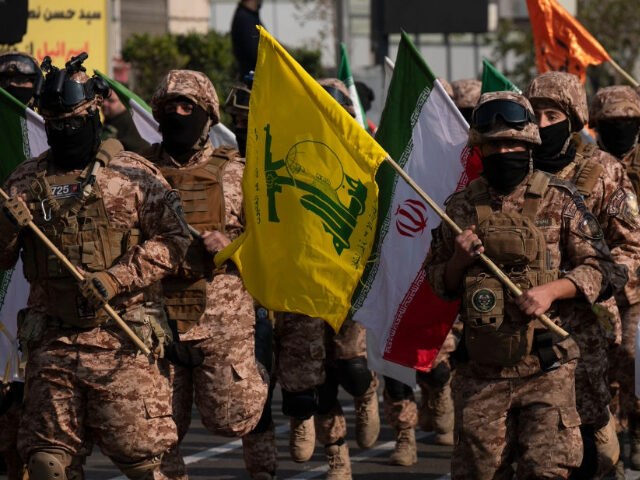The Islamic Revolutionary Guard Corps (IRGC) of Iran, a designated terrorist organization and formal arm of the Iranian military, reportedly launched a drone and missile attack on Monday against the U.S. consulate in Erbil, the capital of Iraqi Kurdistan.
Iran claimed the attack targeted “Mossad bases” and “anti-Iranian terrorist groups.” Kurdish officials have consistently denied Iranian allegations that Israel’s Mossad intelligence agency operates in their territory.
An Iraqi security source told ABC News that the IRGC bombing killed four people, but none of them were American or coalition forces.
“No U.S. facilities were impacted. We’re not tracking damage to infrastructure or injuries at this time,” a U.S. official concurred.
Kurdish news service Rudaw also reported on Monday night that the IRGC attack killed four civilians and wounded another six. One of the casualties was reportedly Peshraw Dizayee, a Kurdish businessman who owns a major company called the Falcon Group.
According to Hemin Hawrami, former deputy speaker of the Kurdistan Region parliament, Dizayee was at home when an Iranian missile struck his house. He succumbed to his injuries soon after the attack. Several members of his family were also reportedly killed.
Explosions from the attack were reportedly visible from the airport in Erbil, where U.S. and coalition forces are stationed. The airport temporarily suspended operations following the Iranian attack.
Sky News reported the U.S. Consulate in Erbil was one of Iran’s targets, but several of the incoming missiles were intercepted before they could damage it. At least one drone launched by Iran’s Shiite militia proxies targeted U.S. facilities but was also intercepted before it could cause damage, according to Kurdish security sources.
The IRGC quickly took responsibility for the terrorist attack in a rare statement, claiming it fired ballistic missiles at “espionage centers and gatherings of anti-Iranian terrorist groups” in Erbil.
The IRGC claimed some of its missiles were launched at the “perpetrators of terrorist operations” lurking in Iraq — doubtless a reference to the deadly suicide bombing in Kerman, Iran, in early January.
Iranian officials initially blamed the U.S. and Israel for masterminding the attack, but the Islamic State took responsibility shortly afterward. Iran rounded up dozens of suspects and vowed a “harsh response” for the bombing, to quote Supreme Leader Ayatollah Ali Khamenei. The official position of the government of Iran is that the Islamic State is an American proxy militia.
Iran may also have attacked to get revenge for U.S. airstrikes against Iran’s Shiite militia proxies in Iraq and the Houthi terrorists of Yemen, who were armed and supported by Tehran.
The IRGC claimed its targets included “three Mossad bases.” The Kurdistan Regional Government (KRG) denied accusations that Israeli intelligence units were operating on its territory.
The Kurdistan Region Security Council (KRSC) vehemently denounced Iran’s attack.
“The Revolutionary Guards said the attack targeted several positions of Iranian opposition groups. Unfortunately, they always use baseless excuses to attack Erbil, and Erbil as a stable region has never been a source of threat to any party,” the KRSC said.
“This is a blatant violation of the sovereignty of the Kurdistan Region and Iraq, and the federal government and the international community must not remain silent about this crime,” the KRSC demanded.
The IRGC also launched missiles into Syria on Monday night, ostensibly targeting ISIS and allied militant groups.

COMMENTS
Please let us know if you're having issues with commenting.